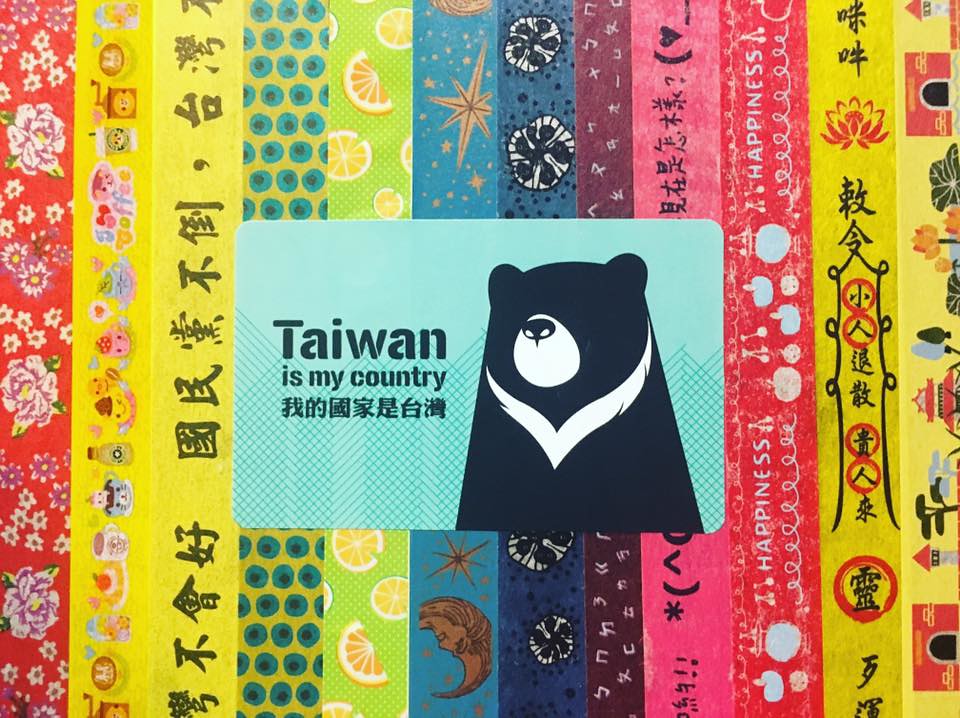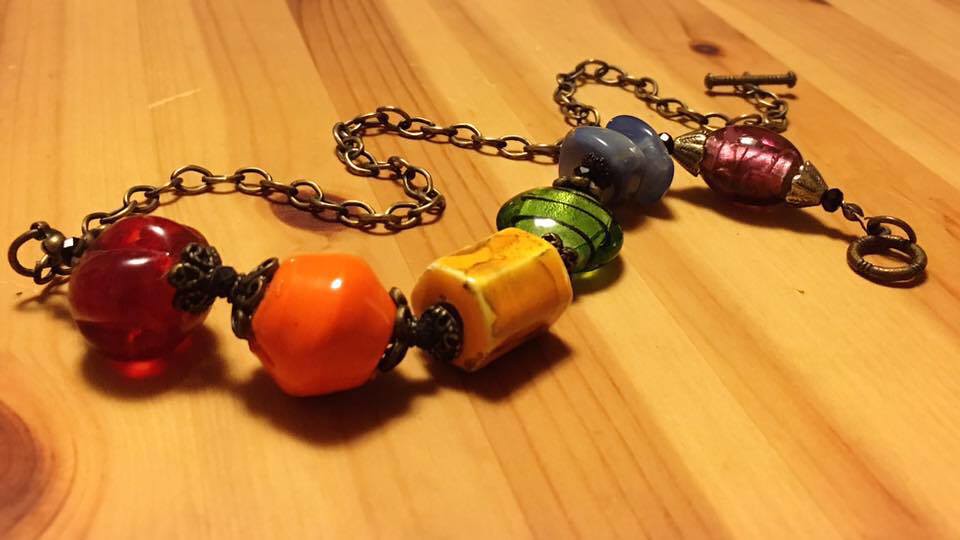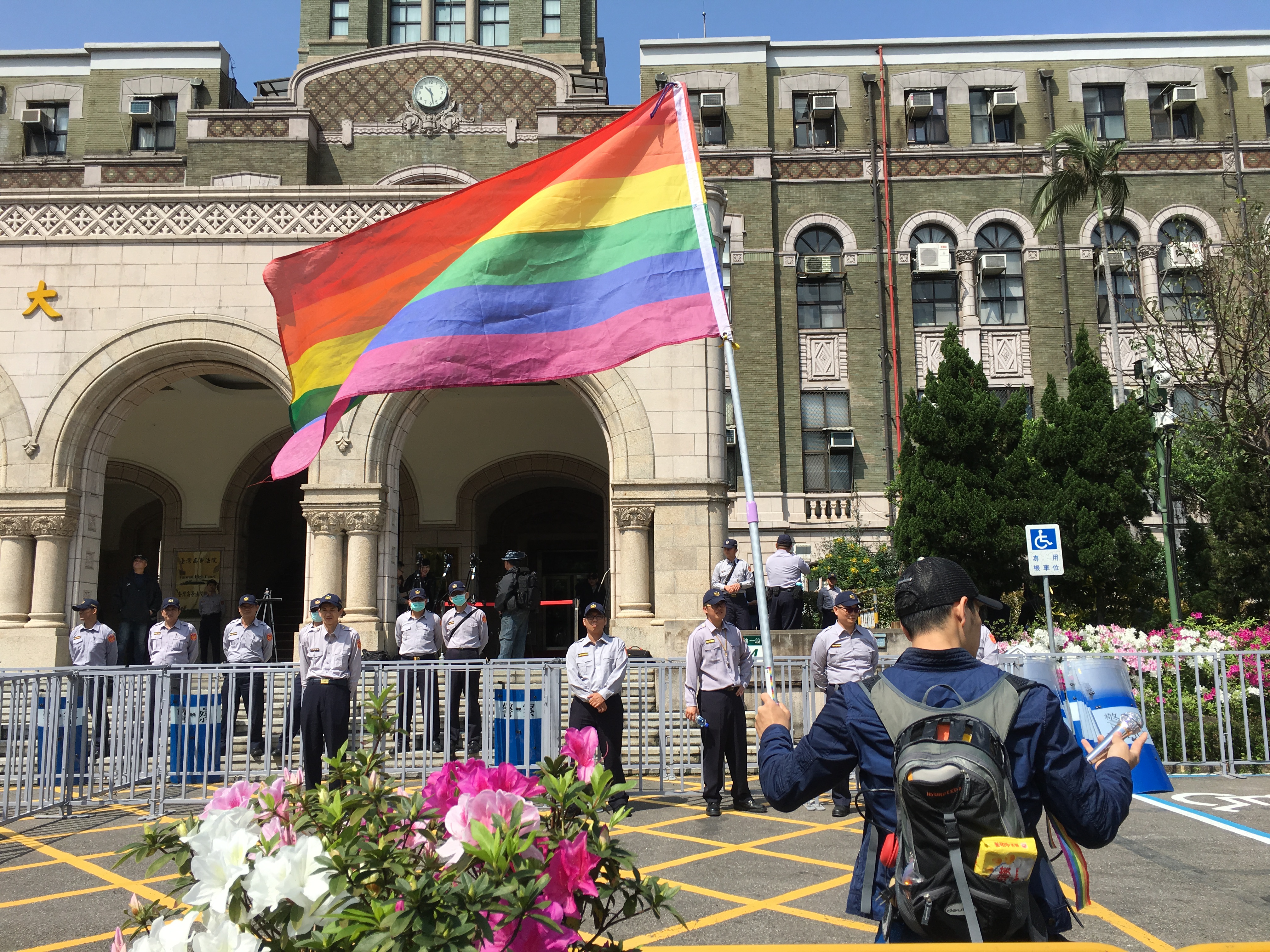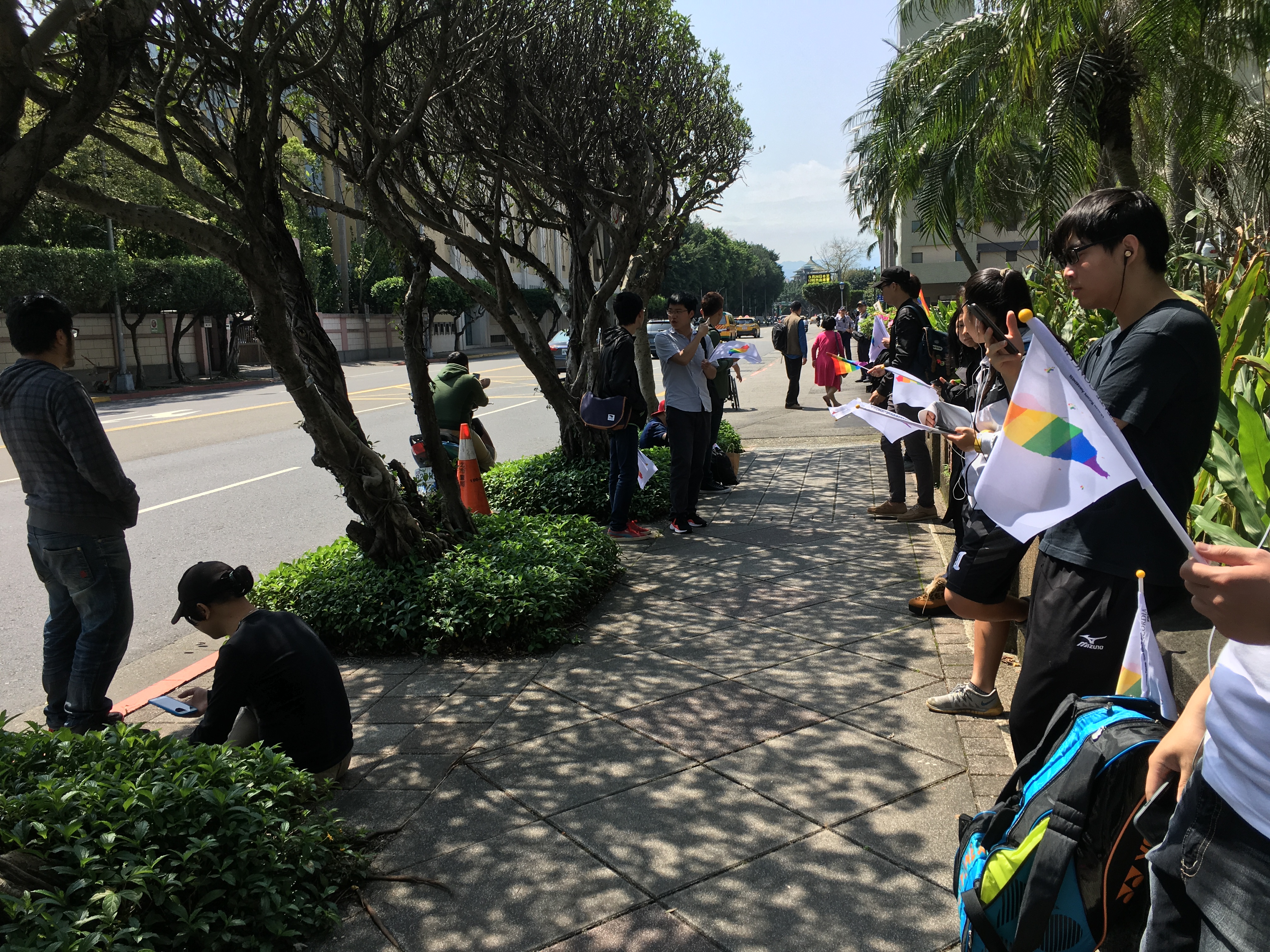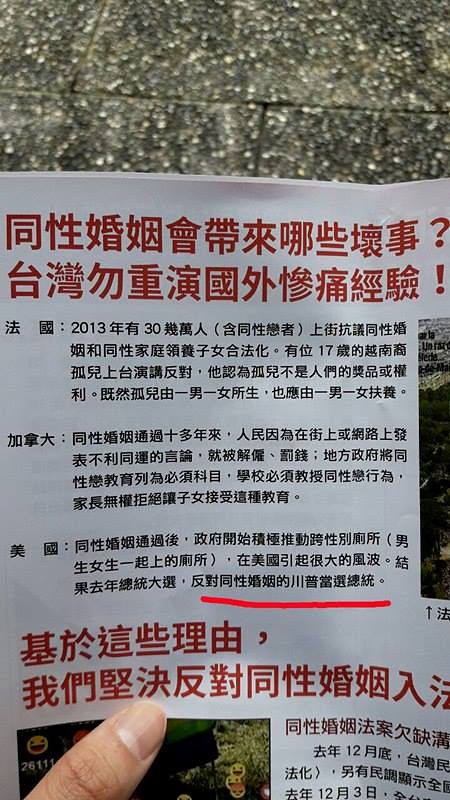You probably already know that I'm an atheist. Have been basically forever. I'm going to tell you why I'm an atheist because I like talking about myself, but also because I think it is a useful tangential point to the one I'd like to make.
At least, I hope it is. After writing this, I realized how much it rambles. I would not call it my best writing. But, I feel like sharing, so enjoy.
The reason I want to tell you now is that it's a riff on
this very good article by a woman who left her job at the evangelical Morrison Academy in Kaohsiung over differences of belief in marriage equality and her right to post about same on social media. So, this does concern Taiwan, I promise you, if you stick with me.
When I was around six years old, I figured out that there was no Santa Claus. I'm not sure exactly when I told my parents this, because at around the same time, my logical deduction about the impossibility of everything about the Santa myth led me to the logical deduction that some old sky-livin' dude who miraculously knew and controlled everything (and yet we had free will? Though I didn't call it that at that age), whose only reward or punishment for the good or the bad was to go somewhere after we died, with no proof of that offered whatsoever, and the only salve for the truly unfortunate was a combination medication of a.) it's a part of some "plan" so it's "okay" (or something?) or b.) God loves you and controls everything but it's not his fault, and you get to go to Heaven after you die in whatever awful way, and the people who built a world in which you suffer will themselves suffer no earthly punishment, with no sign that post-mortem justice is even a real thing was, you know, possibly also deeply illogical and at odds with the world as I observed it.
I told my parents this very offhandedly: as a child, I didn't comprehend that perhaps they knew one impossibility was impossible, but actually believed in another. I was surprised when they reacted badly.
In short, I was born without whatever gene may lead to faith. I do not feel it is a great loss.
I never did change my mind, though my parents' reaction was so adverse that I pretended to for awhile. I went to church (I had to), I even taught Sunday School and sang in the choir, among other things. I was confirmed. I said nothing more about it, because discussion of it was, while not forbidden (my parents were always fairly liberal, in fact), not especially welcome either.
This does not mean that I made a decision as a child and have stubbornly refused to rethink or challenge it in the years since. Several times I've gone back and questioned that lack of faith, wondered if my early rejection of it was mere childishness. So far, none of my challenges has been successful. I remain an atheist. The world as I observe it is still logically inconsistent with pretty much every monotheistic religion and I'm not interested in pretzeling my thoughts into accepting both when
it is vain to do with more what can be done with fewer.
Why on earth am I telling you all this? Oddly enough, so that perhaps you can understand that, in fact, I am not anti-Christian or even anti-religion.
Right. I know.
Back that truck up. What?
My parents' church is a liberal one. They were pro-marriage-equality before it was the law, and around the time of my mother's funeral, rainbow flags were planted outside the building. This was a solid six months before
Obergefell v. Hodges. Although there are perhaps a few Frozen Chosen among the congregation, the bent of their scripture curves toward acceptance and love. You know, the teachings of Jesus.
From years of growing up in it, and as a closeted apostate teenager, teaching it, I can say that there is nothing about the teachings of Jesus that contradicts my own personal belief system. I may not believe in God, but I think of Jesus as a great philosopher. Just because he didn't have a sky dad doesn't mean his words aren't worth heeding. The pastor of that church married us; I respected him quite a bit as a person (he has since retired; I also have a great deal of respect for the new reverend). I actually love this part of Christianity - the part that matters: love thy neighbor, let he who is without sin cast the first stone, judge not, do unto others and more. Notably, he said not a word about being LGBT in any way. There was a benefit to growing up Christian: this aspect of the faith wormed its way into my humanist ethical code.
Furthermore, most of my family and many of my friends are Christian (or Jewish, or Muslim). To take a dim view of faith of any kind would mean taking a dim view of them, or judging them. I simply don't take that dim view - I've seen how faith has helped them through crises, eased their final months and days, informed their laudable belief systems and actions and been something generally valuable to them. It may not make sense to me, but it makes sense to them. I cringe a bit, in fact, when militant atheists pan all believers.
That's my family, dude. They're not idiots or lemmings. Shut it.
In short, my break with faith had nothing to do with social conservatism or other beliefs. I still believe, on a human level, what the church I grew up in taught. I have no problem attending their services, I even contribute to the donation plate with a clear conscience. The break was spiritual - or, if you like, supernatural - only. In earthly respects my ethical code does not differ much from them, and we along well.
If you are curious, I did later 'come out' (if you can call it that) as an atheist to my family. They seemed to have forgotten about the first time and weren't pleased, but they more or less accepted it. Their social beliefs and mine are still similar - I am somewhat more liberal, but none of them are particularly socially conservative and on those issues I'd put them mostly at left-of-center. Not only is there nothing in liberalism or progressivism at odds with Christianity as per my upbringing, but in fact the two are a natural fit.
And why did I tell you that?
Because I do not believe, given my upbringing, that Christianity is fundamentally at odds with social progressivism in general, and marriage equality in particular. This should be obvious, but there are many - as in, far more than you would think - Christians who believe the brand of Christianity I grew up with, the one I feel is in fact most like the teachings of the person for whom the religion is named, is "not real Christianity" and people like my parents are "not real Christians". For whatever reason, they have decided that when it comes to scripture, their interpretive authority is irrefutable and lesser Christians - like, say, my family and many of my friends - are just as damned as those terrifying horror-movie atheists. Why? No idea. Certainly that's not anything Jesus ever actually said.
There are also many atheists who don't see this: they lump together all Christians into a reviled group they see as reactionary haters. Either you're a brainwashed sheep or an enlightened freethinker. I'm not okay with that - it's Bible-thumper judgmentalism dressed up as scientific rationality, veiled with condescension.
However, I'm going to do what I just criticized more fundamentalist Christians for doing, but hopefully call out their No True Scotsman fallacy.
They may think that the liberal, kumbaya Christians I grew up with are "not real Christians", but you know what? I don't think
they are real Christians. In fact, the existence of such vile judgmentalism and closemindedness, to me, is further proof that God does not exist. Those who would seek to take away others' rights, in some cases deeply affecting their lives, go unpunished while those whose rights are taken away suffer. No succor or recourse is offered except for some nebulous concept of judgment after death, or the idea that there is a "plan" that accounts for this. Neither is a satisfactory explanation. I've already been over why I don't accept this model of the universe, therefore, such people are proof, to me, that there is no God.
People like them have been able to successfully delay, and in some cases block, marriage equality. That is, acting in the name of a philosopher who preached love, tolerance and equality, they have denied an entire group of people basic human rights. In some countries, they have successfully criminalized homosexuality.
What God worth believing in would allow this? Who, exactly, is going to be punished after they die if there is an afterlife?
If they are going to open the door to some people who claim to be Christians not "really" being Christian, there is nothing to stop more liberal Christians from throwing it right back on them.
If you - generic you directed at this particular type of "Christian" - do not believe in marriage equality, honestly speaking, I do not think of you as a real Christian. You are merely a bigoted person looking for a preacher to affirm your own shitty dogma. I know real Christians, and unlike you, they are good people. You probably do not believe me, being a scary atheist and all, but believe this: the folks who actually follow Jesus' teachings about love and tolerance are laughing at you, and if there is a Hell it is full of people like you.
Basically, I see no reason why Christianity and marriage equality cannot be bedfellows. The argument I have heard many times in Taiwan is that opponents of equality feel that way "because of their religion". They're Christian - to be Christian (in their view) is to take what they call a "traditional" view of marriage. What that is supposed to mean exactly - or rather why it means what they say it means - I'm not sure.
 |
I am curious which "traditional marriage" they are referring to, or rather, why they've decided only the first one counts, based on a book that allows all of the above.
From here |
It does not, however, have to be that way. Churches that truly follow the teachings of Jesus could be some of the greatest allies in bringing equality to all. I'm aware of the historical reasons why Taiwanese churches tend to be more conservative on the whole than the American churches I know, but it simply does not have to be such an ideological divide.
In fact, if I have to pick a reason or point for why I'm writing all of this, it's to remind people that in the USA the equality/anti-equality divide is not one entirely based on religion. Most objections to human rights for all seem to be religious in nature, true, but like the church I grew up in, often in the US some of the strongest support, and often some of the most important groups spreading the word in a way persuasive to more conservative elements, are progressive churches. Taiwan doesn't need to get rid of Christianity (though frankly I don't think there was anything wrong with the local religions and see no reason to import a new one - it's not superior), though it could stand to dial back how much influence churches have in politics, which far outweighs their actual representation in society. What they need is more progressive Christianity to be on offer.
In fact, I've heard several Christian friends in Taiwan complain of just this: they want to worship, but they can't find a church that squares with their beliefs, and can't bring themselves to attend a church they view as antithetical to their values of love, equality and charity.
I have no idea how to do this: as an atheist I'm certainly not the one to be doing it, and progressive Christians tend not to become missionaries (though some are). The missionaries here, and the connections the established churches have to the US, are all deeply conservative and entrenched. It does feel like wishful thinking.
So, Christianity in Taiwan seems wedded to intolerance - they are currently ideological bedfellows. I feel like this relationship is not the most compatible one, though, and Christianity needs a new partner. I want to say that for those of us on the side of equality, then, perhaps rather than dismissing all anti-equality opponents it would be prudent to offer up that new ideological combination as a way to support equality while maintaining faith. I really do. However, as an unrepentant cynic, I'm not so sure it would work within an acceptable timeframe. Fighting post-truth belief is difficult, and the road is not yet well-trodden. We don't have years. This matters to people's lives.
This is, then, why I was heartened to read Brandt's message. When faced with dogma or love, she chose love. The ideological divide does not have to run along the religious divide in Taiwan.
That said, after the first few supportive comments (I know - never read the comments! But I did) I was then saddened to see the rationalizations that people who thought of themselves as good Christians gave for wanting to deny rights to others. I'm not going to get into an advanced ecumenical debate, so let's just say I find the "love the sinner, hate the sin" argument lacking for all the reasons you can imagine. If you hate something that is an intrinsic part of someone else, you cannot then wholeheartedly claim to love them, as much as you might like to. It's as stupid as saying "I love my black friends, but hate their blackness". "I love my Vietnamese friends but hate the sin of being born Vietnamese". "I love my daughter, I just hate that that she's female." It's no better. What you are doing is dressing up bigotry with fake 'love' in order to make yourself feel better, because it sounds a little more like what Jesus might have said (which is what makes people like
Katy Faust so dangerous - it sounds plausible to someone trying to reconcile religion with caring for a human being who does not epitomize that religion's moral code, but is in fact not plausible) - without considering that sin is a choice but homosexuality is not. That people are going to be gay whether you want them to or not, whether you think your sky friend likes it or not, whether you give them rights or not. It is not a sin any more than my having a vagina is a sin (though the Internet sure seems to think it is), because it is not a choice.
This is what we need to fight, but I am not sure at all that it is possible.

